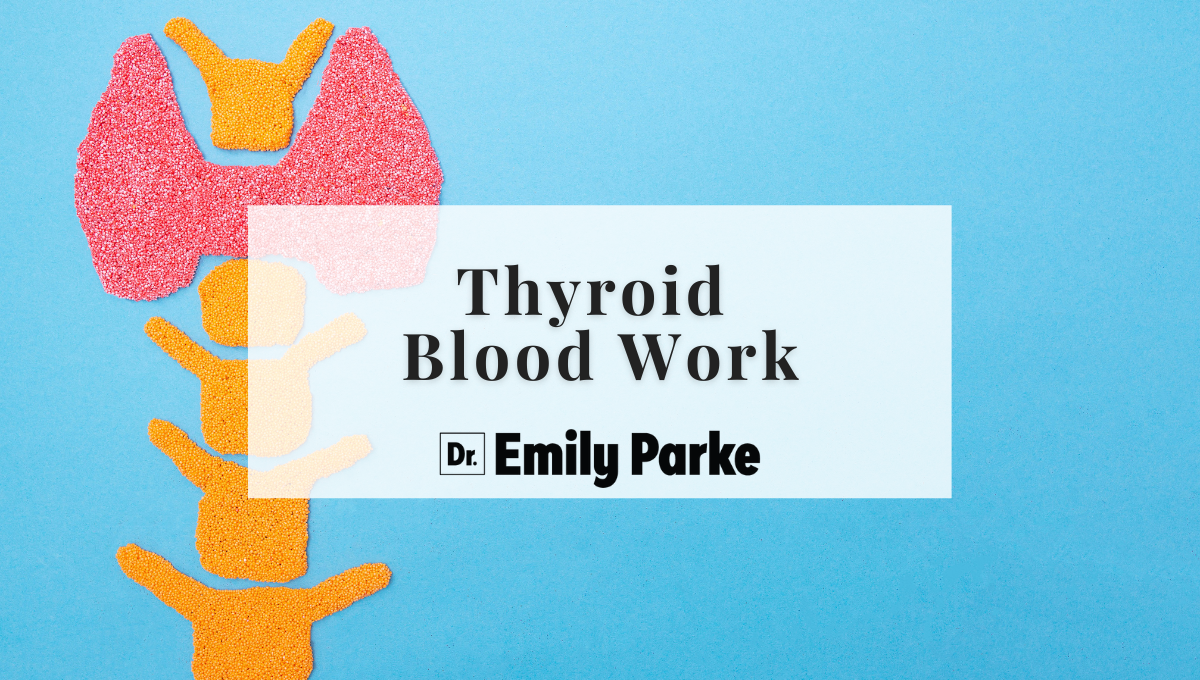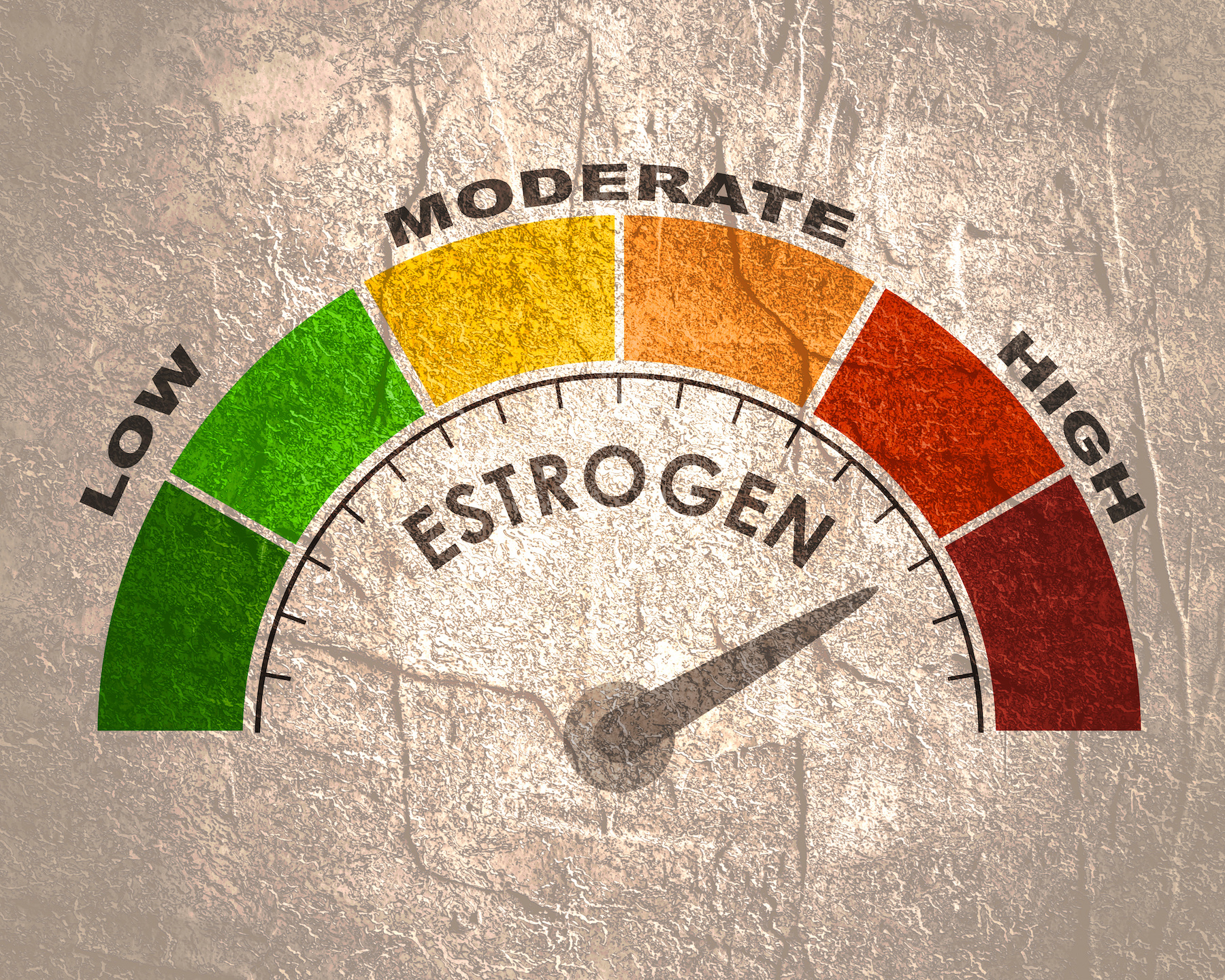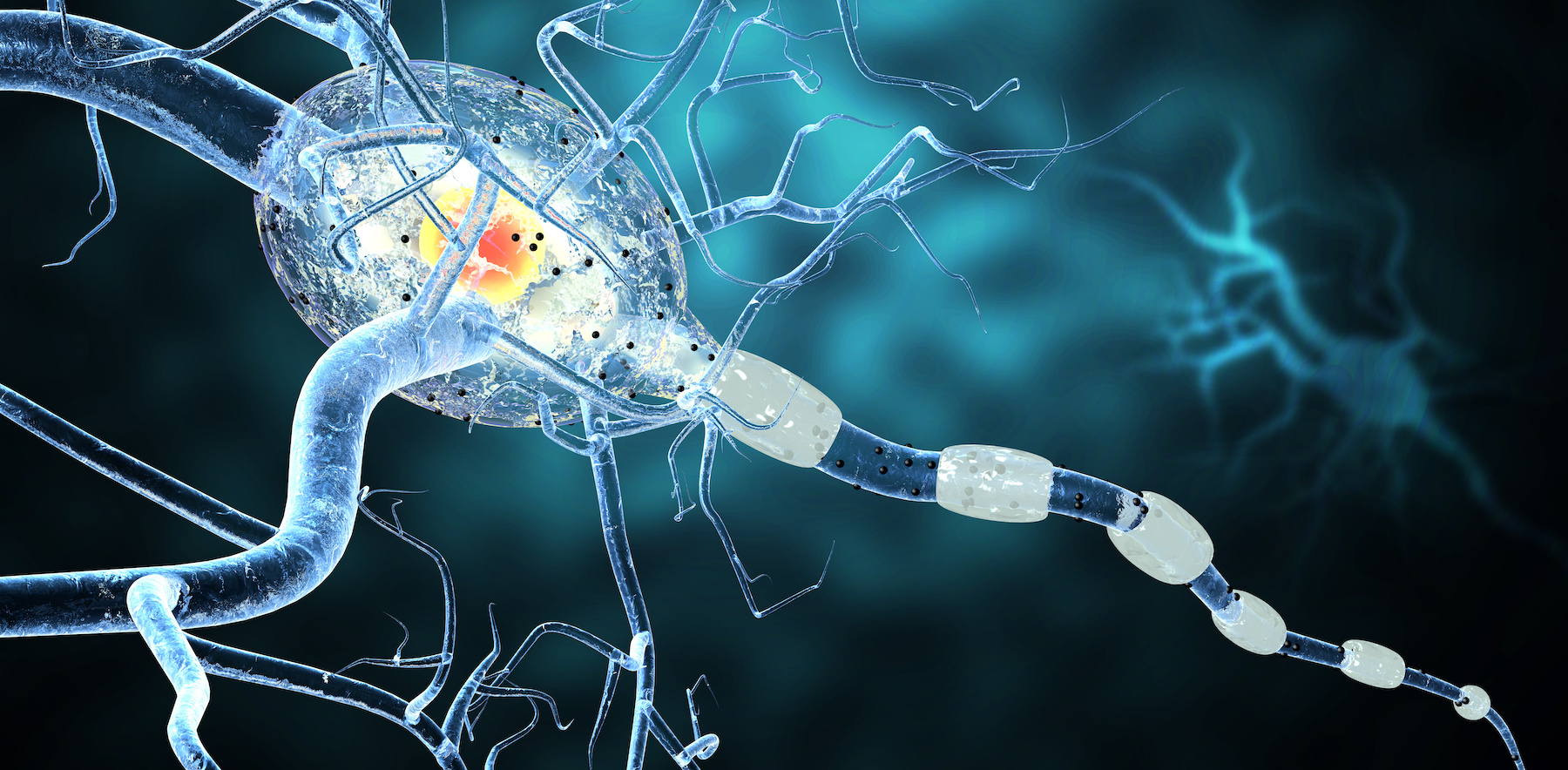

Hi. This is Dr. Emily Parke with your next Functional Health Minute. Today, I’d like to spend just a couple minutes reviewing what kind of blood work you should get if you’re wanting to have a complete review of your thyroid. So of course, we want to look at TSH, which is thyroid stimulating hormone, but we also want to look at the thyroid hormones themselves. So if I want to get a really complete picture of what’s going on with someone’s thyroid, I will take a look at the total T4, free T4, total T3, free T3, and reverse T3. In addition, I usually do some autoimmune disease markers, like TPO, so thyroid peroxidase antibodies and thyroglobulin antibodies, just to double check that there isn’t Hashimoto’s going on, which is a very common autoimmune disease.
Thyroid Function
But there’s also, of course, the second most popular or well-known autoimmune disease of the thyroid is Graves’ disease. And there’s a different set of antibodies to look at, like thyroid stimulating immunoglobulin and the thyroid receptor antibody. And those with Graves’ can also have TPO and thyroglobulin antibodies raised as well. So depending on who you are, what your history is, I’m definitely going to want to look at, at least a TSH, total T3, free T3, total T4, free T4, reverse T3. And then of course, looking at the thyroid antibodies. Now, if you’re true to assessing thyroid function, you’re also going to want to look at other hormones and nutrients and toxins, of course. So, your adrenal hormones, like DHEA and cortisol, and your sex hormones, both male and female.
So obviously, progesterone, estrogen, which usually is estradiol for women and estrone for men, and looking at total and free testosterone. And sex hormone binding globulin is also needed. And then also looking at some key nutrients that are co-factors for thyroid hormone production and thyroid health. So for example, looking at iodine, looking at magnesium, zinc, copper, selenium, vitamin D, iron. There’s a big set of nutrients that play certain roles in thyroid health. And so sometimes if you get a thyroid panel back and it’s not abnormal, but in our functional medicine world, it’s not optimal, you want to start looking at what those factors are, right? So nutrient deficiencies can play a big role. So can toxins.
Thyroid Health
And of course, heavy metals, for example, mercury can be stored in the thyroid and create some thyroid dysfunction. But also chronic infections can play a role in thyroid health. Any type of inflammatory process can also play a role in thyroid health. There’s just so many angles on it that tell us what the whole picture is when you’re assessing and looking at thyroid labs. So those are the key labs I would look at and things I would consider. Now, if you do have an autoimmune disease of the thyroid, then of course, we’re going to want to look at more than just thyroid function, right? We’re going to want to look at what are the root causes. What are the reasons why that autoimmune disease turned on or got triggered? And so that’s going to be a whole other host of labs. And of course, we are definitely, in functional medicine, going to start by looking at the gut.
We will be doing at least a comprehensive stool analysis, but maybe even other gut testing, depending on the symptoms that you’re reporting. Of course, maybe a breath test looking for SIBO or IMO. An organic acid test looking for a fungal overgrowth. A mycotoxins test, seeing if there’s current mold exposure. And of course, looking at a big panel for chronic infections, other environmental toxin exposures, and so on. There’s a lot of ways we can go with this. Food sensitivities. There’s so many different tests we can get into in functional medicine to look for the root causes. But just to summarize the key labs that we want to do, TSH, total T3, free T3, total T4, free T4, reverse T3 at the very least to assess thyroid function. And then if you’re wanting to investigate autoimmune disease, you want to look at TPO and thyroglobulin at least. And if you think there’s a chance of having hyperthyroidism or Graves’, you want to add in things like thyroid stimulating immunoglobulin and the TRAb, the thyroid receptor antibody at least as well. This is Dr. Emily Parke with your Functional Health Minute.
Share:
Dr. Emily Parke
Related Posts

What Is Sleep Apnea? Symptoms, Risks, and Treatment Options
Sleep apnea occurs when breathing repeatedly stops and starts throughout the night. Learn the symptoms, risks, and sleep apnea treatment options.

Estrogen Metabolism: How It Works, Why It Matters, and Supplements for Healthy Estrogen Metabolism
Estrogen metabolism is vital to estrogen regulation. Learn how it works and how the DUTCH test can provide insight into hormonal imbalance.

The Paleo Diet Versus the Autoimmune Paleo Diet: Differences and Benefits
Learn the difference between the paleo and the autoimmune paleo diet, including food lists, what foods to avoid, and all the health benefits!

A Complete View of Multiple Sclerosis: Symptoms, Diagnosis, and Functional Medicine Treatment Options
Get a complete view of multiple sclerosis, including common symptoms and treatment options, including nutrition and supplementation.
